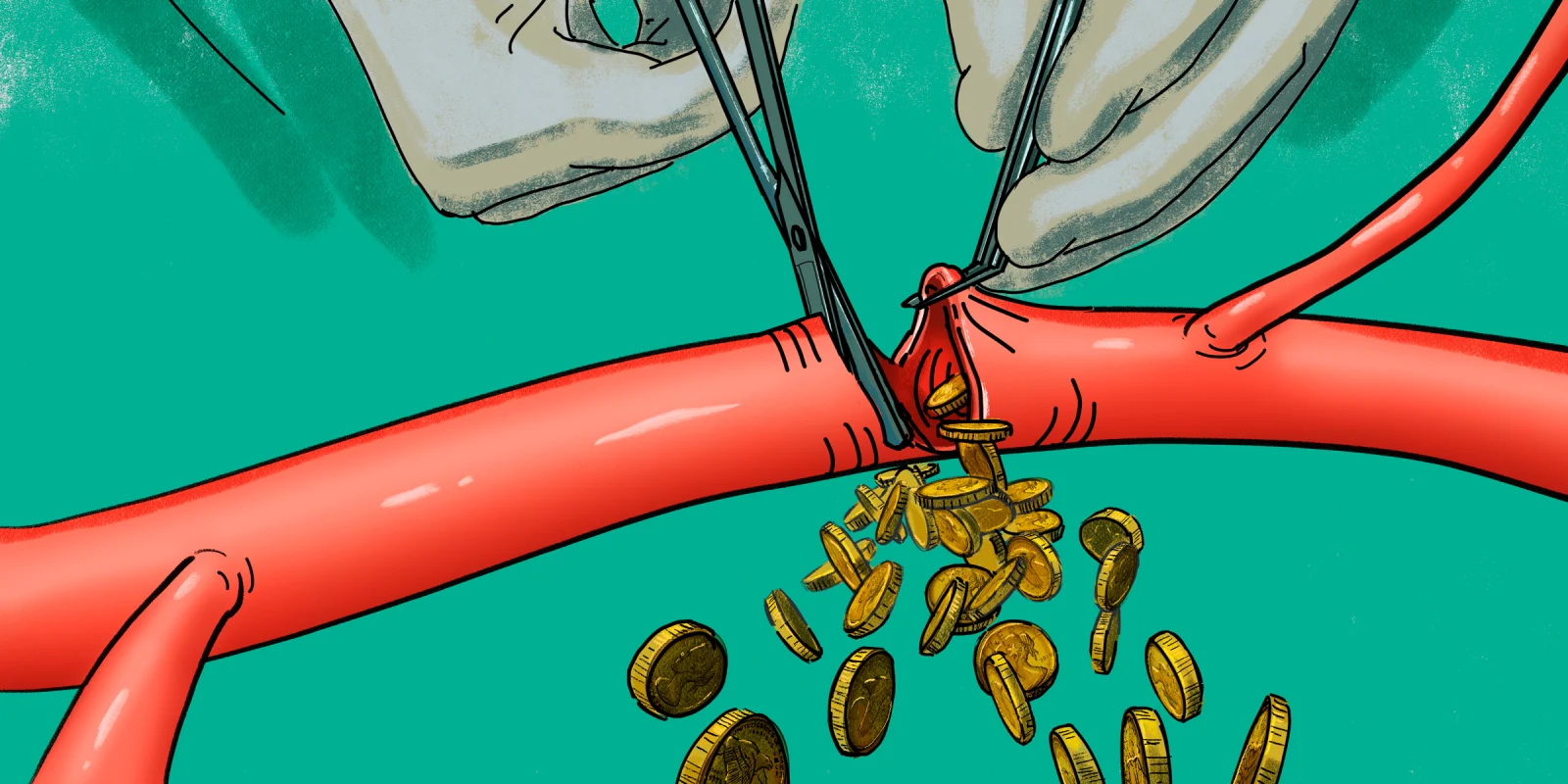Imagine the following scenario. A young man suffers life-threatening injuries in an automobile accident and is transported to an ER. He manages to say that he has no health insurance before becoming uncommunicative, and the ER personnel begin measures to save his life. However, the ER administrator, upon hearing that he has no insurance, instructs the staff to stop working on the patient and send him elsewhere. During transport to another hospital, he dies from his injuries.
To be clear, the above scenario is fictional and would not happen in any ER in the U.S., at least not one in a hospital that accepts Medicare, because there is a law forbidding it known as the Emergency Medical Treatment and Labor Act (EMTALA). Per the law, passed in 1986, the hospital must provide care to that young man, insured or not. Good, most people might say; hospitals should provide life-saving care in emergencies, even if a patient doesn't have insurance.
But here's the thing. A patient such as the one above could quickly rack up tens of thousands of dollars in medical bills, which he likely will not be able to pay, meaning that the hospital would have to absorb most of the cost of his care. In no other business in the U.S. is it a requirement to provide a product or service when it will not be paid for. For example, there will never be a law requiring a company to sell office furniture to an entity they know cannot pay for it. Is it fair to make hospitals do so?
Not that long ago, our country debated — during the advent of the Affordable Care Act and subsequently during the Supreme Court case regarding it — whether we could require an individual to have health insurance. The Supreme Court decided no. Fair enough; that finding was in keeping with our country’s high value on individualism. But in keeping with our country’s high value of free market capitalism, is it then right to require a hospital to treat those patients?
There has been some discussion of this in the medical and ethics literature, but somewhat surprisingly, this contradiction mostly seems to have escaped the notice of the general public. It seemed like a good argument for the side of those who favored requiring individuals to have health insurance. I mean, imagine if hospitals could stop treating uninsured patients in emergency situations. Those people would start dying like flies, and the public outcry would be great. Might that change folks’ minds about the requirement to have health insurance?
On the other hand, the thought of ERs being able to deny care to uninsured people may be too much for them to handle. And don’t get me wrong: Hospitals should be required to provide care to anyone who shows up with an emergent illness or injury. Hospitals are different from other businesses; they have chosen to be in the business of saving lives. But I also think that, in the U.S., we should have a way of compensating hospitals for that care, whether it be through Medicare for all, by simply having the government reimburse hospitals for uncompensated care, or by requiring an individual to have health insurance. (It should be noted that this individual mandate, that a person needs to have health insurance, is required by five states — California, Rhode Island, Massachusetts, New Jersey, and Vermont — and the District of Columbia.)
And to be fair, hospitals can get compensation for some of that care by enrolling patients in Medicare or Medicaid, for example, but too much of the onus is still placed on the hospital — and those costs are then passed on to “paying” customers, or they swallow the hospital up. I used to work for a hospital that closed because it could not afford to pay for all of the uncompensated care it provided.
Uncompensated care and uninsured patients are a huge problem in this country. A recent estimate said that 8.6% of the U.S. population, around 28 million people, still do not have health insurance — a problem that is underappreciated by people who don't work in health care, and even by some who do.
What's the answer? I don't seriously expect anyone to say it's acceptable for hospitals not to treat dying patients because they don't have insurance. But it sure seems reasonable that, if we are going to ask hospitals to treat them, then maybe requiring someone to pay the hospitals makes sense.
How should payment for emergency care of uninsured patients be managed? Share your thoughts in the comment section.
Paul Holtrop is a recently retired neonatologist who lives in northern Michigan. Besides trying to keep up with the medical literature, he enjoys bicycling and cooking, plus watching college football — except, of course, for the cringe-worthy head injuries. Dr. Holtrop is a 2021–2022 Doximity Op-Med Fellow.
Illustration by Jennifer Bogartz







